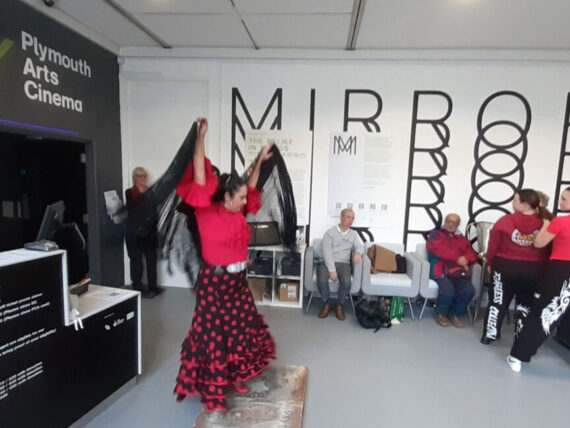Ben Cherry reviews If Beale Street Could Talk, showing in our cinema until Thursday 21 March.
Barry Jenkins is a pretty big deal in Hollywood. After some success from his debut film Medicine for Melancholy in 2008, it took a further eight years without a full-length feature to his name, before the enormous and deserved success for 2016’s Moonlight. If it wasn’t for that film’s Oscar plaudits, If Beale Street Could Talk more than likely wouldn’t have been made, as Jenkins has been trying to get the film off the ground ever since his film debut. Needless to say, it was worth the wait.
The film is an adaptation of the James Baldwin novel of the same name and tells the story of a young black couple in 1970s Harlem. Their world is turned upside down when Fonny, played by Stephan James, is falsely accused of assault and rape and is put behind bars. A further complication is that Tish, played by Kiki Layne, is now pregnant with their child and from then, she decides to devote her time in seeking justice for Fonny and to get him out of prison before the arrival of their baby.
It is mainly told from the perspective of Tish and the story is presented in a non-linear fashion, which makes the current plight of the couple’s situation all the more tragic. The romantic scenes of the beginnings of their relationship are mostly seen through flashback and the scenes have a nostalgic feel to them, as they represent a time in which the couple both wish they could go back to. These scenes really capture the thrill of falling in love with someone, getting a new apartment together and all the other exciting ‘first times’ for any young couple. Arguably the most important ‘first time’ is being taken away from them and Tish desperately wants Fonny to experience the birth of their child together and not as she puts it, ‘behind glass.’
As you would expect from the director of Moonlight the film looks absolutely stunning and despite the 1970s setting, the film feels very contemporary and other than the obvious fact there are no computers and mobile phones, the story could easily be set today. Jenkins doesn’t rely on using ‘gimmicky’ songs or pop-culture references to tell the audience that it is a period setting. The soundtrack also has a hypnotic jazz feel to it and with the opening quote by James Baldwin himself mentioning how important New Orleans and Jazz are to the story of African Americans; the choice of music from composer Nicholas Britell makes perfect sense.
The performances are extraordinary, with Regina King as Tish’s mother, Sharon, being the clear standout and there is one scene in particular that must have guaranteed her the Oscar she won a few weeks ago. Even the relative newcomers more than hold their own and both Kiki Layne and Stephan James clearly relish playing these complex characters, with difficult scenes that plenty of actors more famous and twice their age would struggle to convey convincingly.
For a story that is set in the seventies, the issues presented are still scarily relevant. In the last few years, with the ‘Black Lives Matter’ movement and the constant stories of police brutality against young black men in America, If Beale Street Could Talk serves as a tragic reminder that the oppression and discrimination that Tish and Fonny face is something that many African-Americans still face in a post-Obama world. There are some interesting almost ‘documentary-like’ sequences that Tish narrates, that show various photos of black people being persecuted over the years. The sequences really drive the point home and show how common the situation Fonny faces and just how broken the justice system is in America.
If Beale Street Could Talk is another exceptional example that black cinema is particularly vital and relevant at the moment. It stands alongside BlacKkKlansman, Moonlight and Get Out in regards to telling powerful, untold stories and bringing them to the mainstream. The film is a mature, thoughtful and beautiful piece of work and to paraphrase Barry Jenkins, ‘it is first and foremost a love story’ and it is an outstanding one at that.
Ben Cherry









Comments
Comments are closed.